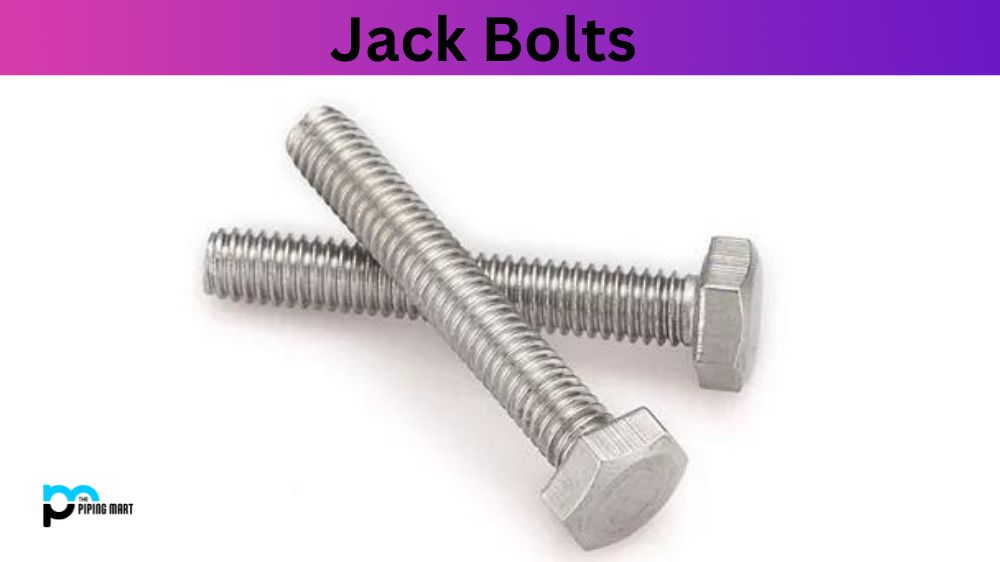Bolts are an essential component in any engineering work, and they play a critical role in holding different parts of machines together. One specific kind of bolt that has become increasingly popular is jack bolts. Jack bolts are highly unique and designed to provide clamping forces that can take up large loads. Many engineering industries have discovered the benefits of using jack bolts, which has led to their widespread application in different sectors. In this post, we will explore what jack bolts are, their features, and their many uses.
Definition of Jack Bolts:
A jack bolt is a threaded rod or stud with threaded nuts. It is used to pre-stress a structure, and it allows you to improve the physical performance of the structure. This kind of bolt is commonly used in applications that require high preload forces, and they are great for joining different parts of equipment together.
What is Jack Bolts?
Jack bolts are a type of fastener used in construction and engineering projects. They are usually high-strength steel and feature a slotted or hexagonal head for easy installation. These bolts provide superior tensile strength, excellent fatigue resistance, and good vibration dampening qualities. Jack bolts have become increasingly popular due to their ability to be easily installed without special tools or extra fastening hardware. Furthermore, they can often be reused multiple times, making them cost-effective in the long run.
Features of Jack Bolts:
The unique features of jack bolts make them highly suitable for different engineering applications. Some of the features of jack bolts include:
They are corrosion-resistant
They can be easily adjusted to suit different applications
They can be customised to order
They can be used in high-stress environments
They are made from high-quality materials that are durable and strong.
Uses of Jack Bolts:
Now that we have established what jack bolts are and their features let’s explore their various applications. Jack bolts are commonly used in:
Clamping applications: Jack bolts can be used in clamping applications in different industries such as oil and gas, power generation, and construction. They are perfect for applications that require a strong and efficient clamping system.
Bearing and coupling applications: Jack bolts can also be used in applications that require a bearing and coupling system. They provide the clamping force required to keep the bearing running smoothly and prevent any couplings from slipping.
Industrial maintenance applications: Jack bolts are also commonly used in industrial maintenance applications. They can anchor and hold down equipment or fixtures during maintenance work, allowing work to proceed safely and efficiently.
Advantages of Jack Bolts:
Jack Bolts offers significant advantages compared to other types of fastening solutions. They are designed to be lightweight, corrosion-resistant, and provide superior bolt integrity with their internal locking mechanism. Additionally, Jack Bolts can be used in various applications due to their high tensile strength and tolerance range – making them ideal for use on pipelines and vessels. Finally, Jack Bolts are often easier to install than traditional nuts or bolts since they come pre-assembled with an integrated nut and washer. This saves time during installation and reduces the need for specialized tools.
Conclusion:
Jack bolts are crucial in various engineering applications, providing a secure and efficient clamping system. With their unique features, easy adjustability, and cost-effectiveness, it’s no surprise that they have become increasingly popular in many industries. If you are working in an industry requiring a strong and reliable clamping system, jack bolts are an excellent choice.

A passionate metal industry expert and blogger. With over 5 years of experience in the field, Palak brings a wealth of knowledge and insight to her writing. Whether discussing the latest trends in the metal industry or sharing tips, she is dedicated to helping others succeed in the metal industry.




